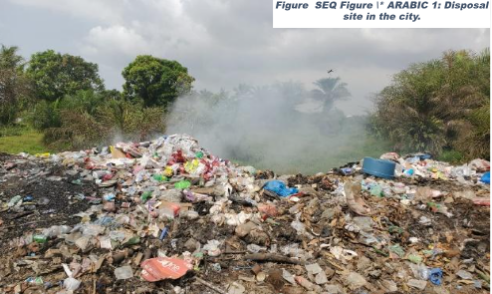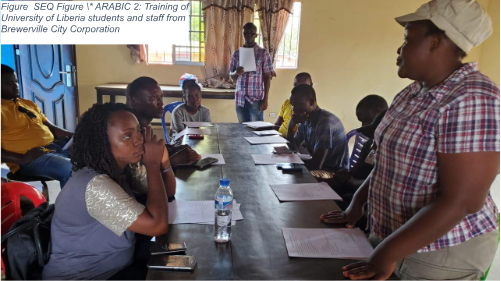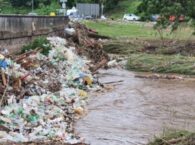Brewerville Addresses Waste Management Crisis Through Collective Bargaining Agreement Facilitated by an EPIC Partnership
Metrics
Community
Brewerville CityUniversity
University of LiberiaStatus
In ProgressCase Type
Project StoriesSchool Size
15000Focus Areas
Waste ManagementDiscipline
Environmental StudiesRegion
AfricaSustainable Development Goals
6 Clean Water and SanitationBrewerville City, situated in Montserrado County, Africa, is a municipality that is presently confronted with a severe waste management predicament. As a result of insufficient policy interventions, the general populace is confronted with an inadequate waste management system that clogs public spaces, waterways, and thoroughfares with refuse hazardous waste, nonrecyclable, and recyclable materials. The average Brewerville resident generates one kilogram of refuse per day, which is higher than the national average for Liberia, so this absence of a municipal waste disposal system significantly impedes daily life. Additionally, Brewerville is undergoing a substantial population growth spurt, with the city’s total populace having increased by approximately 4,000 individuals over the last decade. This increased population is substantially exacerbating the waste crisis, as the municipality is ill-equipped to manage the substantial volume of refuse that has resulted from the influx.

Departing refuse in public spaces gives rise to significant environmental ramifications, including the contamination of soil, ground, and surface water sources, as well as an increased susceptibility of citizens to climate-induced natural disasters. A significant proportion of the immigrants to Brewerville are members of vulnerable groups with low incomes who are actively seeking employment in the city. This population is disproportionately impacted by the degraded ecosystem brought about by waste disposal, as they are more likely to reside in or near regions with high waste concentrations. In addition to causing harm, disease, and societal issues, the waste near these residences impairs the health of the inhabitants and hurts the wages earned by local businesses.
To educate the public about the health effects of solid waste management, the Brewerville government has collaborated with the University of Liberia’s Department of Environmental Studies and Climate Change to develop a course in which students and faculty conduct research on waste management issues in the city using the EPIC model framework. Together with the mayor’s office of Brewerville, the students will formulate a communal solid refuse management strategy. This study aims to strengthen the connections between the University of Liberia and the city of Brewerville, as well as enhance waste management. Subsequently, the students will also examine how collective bargaining can enhance community-based refuse management in Brewerville as this plan will educate community members, municipal administrators, and environmental studies students on waste prevention and management.

The team intends to convene a town hall meeting with government officials and residents to deliberate on the environmental ramifications, health benefits, and research objectives associated with refuse waste cleanup. The team will conduct a community-wide waste management survey following the conclusion of the town hall to collect data on waste management, garbage production, and town demographics. Based on the responses to this survey, a face-to-face questionnaire will be designed to ascertain the waste management practices of the public. The responses to the survey will be utilized to develop a community refuse management program in which participants will acquire optimal waste control techniques.
Additionally, the data obtained from the survey and questionnaire will be utilized to determine a potential location for refuse development. The project and community members will collaborate to designate and clear a city-approved refuse waste site as part of the community engagement initiative. This will provide individuals with a designated location for waste disposal, resulting in community-wide garbage management and control. Contributing to the creation of a safer living environment for humans, this endeavor will reduce potential public health risks and ensure that citizens have access to pure air and water. Additionally, the proposed research will improve the safety and sustainability of Brewerville’s waste disposal, management, and control by promoting natural drainage and reducing the likelihood of inundation. An increase in waste management will additionally foster a cleaner and more resilient municipality, thereby reducing the likelihood that its inhabitants will be impacted by climate-induced natural catastrophes.
Additionally, the undertaking will yield numerous favorable environmental consequences, including increased habitat availability for species and reduced pollution in the vicinity of natural habitats. This will aid in mitigating the effects of climate change and provide disadvantaged individuals with a secure living environment.
This project is ongoing.


